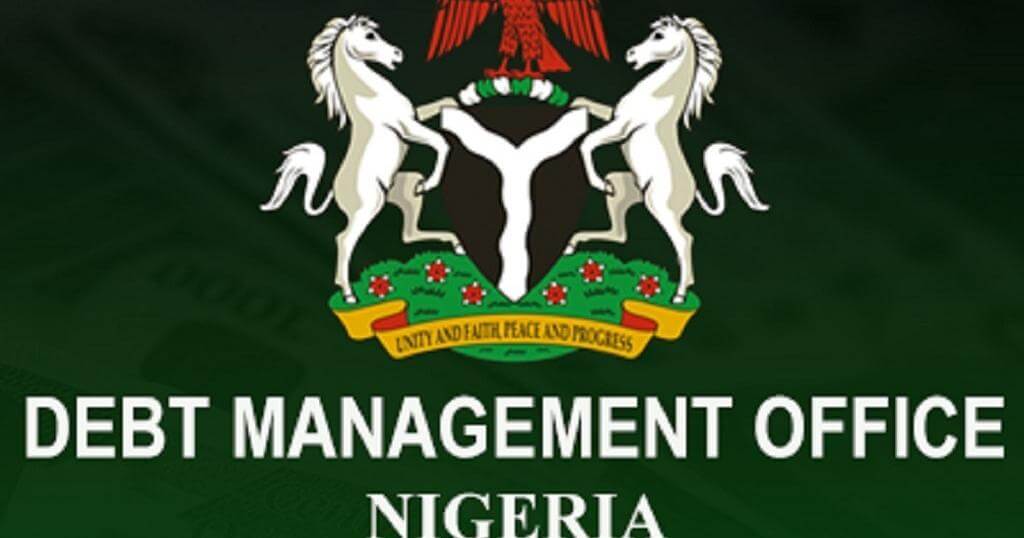…Says $3.1bn Chinese Loans Approved By NASS
…Loans Used To Finance 11 Infrastructure Projects
Advertisement
The Debt Management Office on Wednesday said that contrary to claims in various quarters that loans from China constitutes a huge chunk of the sources of fund to the goverment, Nigeria’s indebtedness to the country is just about $3.12bn.
The agency which said this in a statement made available to THE WHISTLER, noted that the $3.12bn loan from China constitutes just about 3.94 per cent of Nigeria’s total public debt of $79.3bn as of March 31, 2020.
Similarly, in terms of external sources of funds, DMO in the statement said that loans from China accounted for just 11.28 per cent of the external debt stock of $27.67bn at the same date.
These data, it noted, show that China is not a major source of funding for the Nigerian Government.
Advertisement
The relationship between Nigeria and China with regard to loans obtained from the latter to fund Nigeria’s infrastructural projects suddenly became a matter of legislative intervention and public scrutiny last week when the House of Representatives summoned the Minister of Transportation, the Minister of Finance, Budget and National Planning and the Minister of Communications and Digital Economy to appear before it on August 17.
The contentious clause is Article 8(1) which provides inter alia that “the borrower hereby irrevocably waives any immunity on the grounds of sovereign or otherwise for itself or its property in connection with any arbitration proceedings pursuant to Article 8(5) thereof with the enforcement of any arbitral award pursuant thereto, except for the military assets and diplomatic assets.”
This has been interpreted by various stakeholders to mean that Nigeria is in danger of losing its sovereignty to China
But explaining what the terms of the loans from China are, DMO said that the total borrowing from China of $3.121bn as of March 31, 2020, are concessional loans with interest rates of 2.50 per cent per annum.
It put the tenor of the loan at 20 years, adding that it comes with a grace period (moratorium) of Seven years.
Advertisement
“These Terms are compliant with the provisions of Section 41 (1a) of the Fiscal Responsibility Act, 2007. In addition, the low interest rate reduces the Interest Cost to Government while the long tenor enables the repayment of the principal sum of the Loans over many years.
“These two benefits make the provisions for Debt Service in the Annual Budget lower than they would otherwise have been if the Loans were on commercial terms,” it added.
Explaining how the loans were used, the agency said that the $3.121bn loans are project-tied loans used to finance about 11 infrastructure projects.
Some of these projects are the Nigerian Railway Modernization Project (Idu-Kaduna section), Abuja Light Rail Project, and Nigerian Four Airport Terminals Expansion Projects (Abuja, Kano, Lagos and Port Harcourt), Nigerian Railway Modernization Project (Lagos-Ibadan section) and Rehabilitation and Upgrading of Abuja – Keffi- Makurdi Road Project.
It added, “The impact of these Loans is not only evident but visible. For instance, the Idu – Kaduna Rail Line has become a major source of transportation between Abuja and Kaduna.
“Also, the new International Airport in Abuja, has improved air transportation for the populace, while the Lagos – Ibadan rail line when completed, will ease traffic on the busy Lagos -Ibadan Expressway.
Advertisement
“The projects also have the added benefits of job creation, not only by themselves but through direct and indirect service providers, a number of which are Small and Medium Enterprises.
“It is widely accepted that investment in infrastructure is one of the most effective tools for countries to achieve economic growth and development.
“Using Loans from China to finance infrastructure is thus in alignment with this position.”
Explaining the process by which the loans were obtained, DMO in the statement said that the principal process and requirements for borrowing by the Government are expressly stated in the Debt Management Office Establishment (ETC) Act, 2003 (DMO Act) and the Fiscal Responsibility Act, 2007.
It said for instance that Section 21 (1) of the DMO Act, stipulated that “No External loan shall be approved or obtained by the Minister unless its terms and conditions shall have been laid before the National Assembly and approved by its resolution.”
Similarly, it added that Section 41 (1a) of the FRA stated that, “Government at all tiers shall only borrow for capital expenditure and human development, provided that, such borrowing shall be on concessional terms with low interest rate and with a reasonable long amortization period subject to the approval of the appropriate legislative body where necessary.”
Providing more insights on the loan approval process, the statement said the Federal Ministry of Finance, Budget and National Planning works with the Ministriea, Departments and Agencies under whose portfolio a proposed loan falls and also with the DMO.
Thereafter, it said the approval of the Federal Executive Council is sought.
“It is only after the approval by FEC that His Excellency requests for the approval of the National Assembly as required by Section 41 of the Fiscal responsibility Act, 2007.
“More importantly, it is only after the approval of NASS that the loans are taken and Nigeria begins to drawdown on the loans.
“In summary, borrowing is a joint activity between the Executive and the Legislative Arms of Government,” it added.
The statement also said the loan agreements are reviewed by legal officers of the Federal Ministry of Justice and the Legal opinion of the Honourable Attorney General of the Federation and Minister of Justice is sought in such loans.



